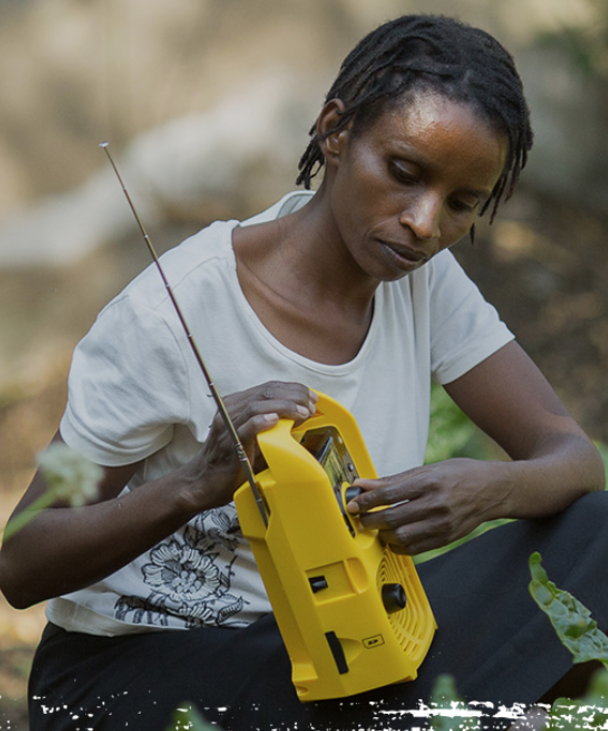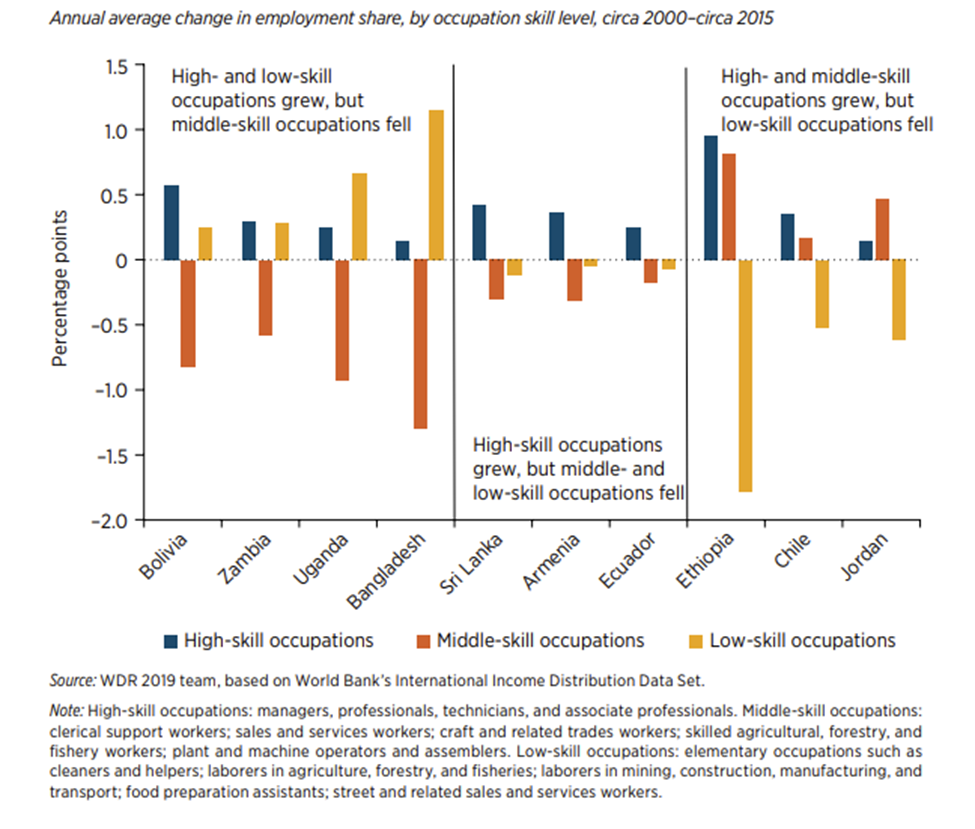As a company that helps clients anticipate, plan, and prepare for the challenges of today and tomorrow, Borderland Partners tracks the opportunities and threats posed by AI, big data, nanotechnology, and other disruptive technologies.
Disruptive technologies will have a transformative effect on organizations and on every member of the workforce, from interns and apprentices still in their programs, to seasoned executives charged with leading organizations. There’s no doubt that technologies like AI, automation, and robotics have the potential to enhance productivity and create new job opportunities. They also pose a threat to those who lack the skills and resources necessary to adapt to rapidly changing work environments. Such technologies can displace a significant number of jobs that involve routine and repetitive tasks. Additionally, these technologies can increase demand for highly skilled workers, exacerbating income inequality and leaving many vulnerable populations even further behind.
While all roles and responsibilities will be altered, we believe special consideration applies to vulnerable populations, including workers in less developed nations, as well as people working in low- and medium-skilled jobs.
Our concern and curiosity led us to complete a certification course based on the World Bank´s Future of Work initiative and its 2019 World Development Report (WDR).
We were impressed with the focused investments in human capital that are underway throughout the world. These initiatives often strive to maximize skills and blunt the harm of disruptive technologies. We wanted to share a few examples that point to the benefits of education and training.
One example is the Skilling Up Lebanon (SUL) Program. The initiative aims to develop a self-financed, private sector-led digital skills program. Established in 2019, Skilling Up Lebanon strives to increase access and improve the digital skills of children, youth, and workers. Two partners are involved, the World Bank and Beirut Digital District (BDD). The World Bank is leveraging its convening power to attract key global, regional, and local stakeholders, most importantly content and certification providers, while BDD leverages its central position in the tech ecosystem to implement the initiative, in partnership with local players, while ensuring its long-term sustainability. The project kicked off with an awareness-raising campaign targeting students on the changes happening in the job market of the future and new opportunities in digital and creative sectors, while also implementing an internship program. In parallel, the BDD began working with major employers in Lebanon and in the region, to identify gaps in digital skills. Based on these gaps, a series of micro-credential trainings linked to industry certification will be developed, enabling young Lebanese to find better employment opportunities.
Another example comes from Bangladesh, with the Resilience, Entrepreneurship and Livelihood Improvement (RELI) Project. This five-year initiative, funded in 2021 with $300 million from the World Bank, will help improve the livelihoods of about 750,000 poor and vulnerable rural people across 3,200 villages in 20 districts.
The project goals focus on helping to organize and build the capacity of village groups, and finance climate-resilient infrastructure and community plans for savings and micro-loans, giving priority to the poor and extreme poor, women, and youth. With over 90% female beneficiaries, the project will also support entrepreneurship and encourage crop diversification and good nutritional practices, while raising awareness of climate risk adaptation and mitigation, the spread of diseases, and gender-based violence.
A final example centers on mitigating threats to African farmers, and to the world’s food supplies. The Brookings Institute points out that farm labor and income is especially important in sub-Saharan Africa, where on-farm activities represent almost 50% of all rural income in countries like Ethiopia, Malawi, Nigeria, and Tanzania. Information on competitive pricing, monitored crop information, disease prevention tips, and disaster mitigation support has the potential to transform the agriculture sector to improve income, production, and demand.
The initiative, which centers on supporting small-scale farms throughout African, began in 1975, through the efforts of a Canadian radio broadcaster who was visiting Zambia. Impressed with the challenges facing small-scale farmers, George Atkins decided to pursue the goal of creating widely accessible, low-cost and no-cost information about farming techniques that could help small-scale farmers. The medium was the world’s most accessible communication device – radio.
FarmRadio International now exists as an organization committed to making radio a powerful force for good in rural Africa—one that shares knowledge, amplifies voices, and supports positive change.
The organization focuses on three key areas:

- They create and distribute radio resources that help rural radio broadcasters better serve their listeners.
- They run radio projects that improve the lives of people in rural Africa.
- They pioneer radio innovations that make radio even more effective and interactive.
*Image courtesy of Farm Radio International
According to the organization’s own count, they reach an estimated 24.5 million people across rural Africa with life-changing information, and helped 4.9 million make a positive change.To ensure that vulnerable populations contribute to work that brings value to their lives in the face of disruptive technologies, governments, employers, and formal and informal education organizations need to prepare. Investing in human potential, through effective programs that build skills and improve education systems, makes sense.
Borderland Partners is happy to be a part of that effort, by partnering with our clients in the US and by staying abreast of how the rest of the world responds to innovations in our changing work environments.
In many developing countries, the share of employment in high-skill occupations has increased:

Responding to the changing nature of work:



